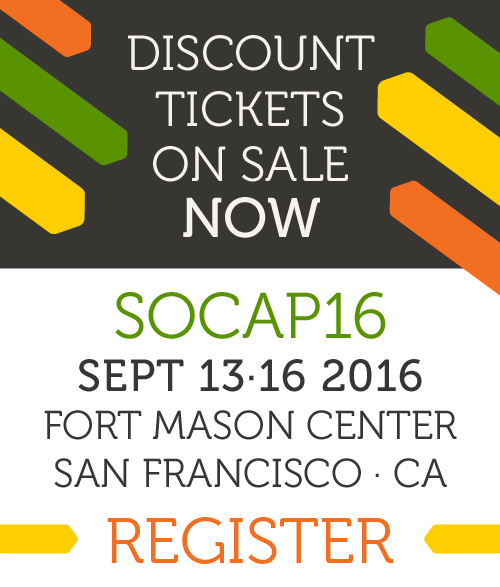Paul Polak may be the single most inspiring man that I have ever met.
Its not because he’s charismatic or because he’s a powerful orator (though he is both), but because he has enabled over 17 million people to escape poverty forever. The very definition of “unreasonable”, the 77-year old former psychiatrist is determined, “before [he] kicks the bucket,” to revolutionize the way we fight poverty so we might actually make progress in solving it. In our conversation below, he explains the mechanism behind his simple, but high-impact solutions to poverty and discusses the great deal of work that still must be done. Check it out.
Video Interview Table of Contents:
- Tell us about your approach to poverty alleviation. (0:01-1:00)
- How did IDE settle on the treadle pump as a solution to poverty? (1:01-3:41)
- How did you market the treadle pump? (3:42-4:28)
- How did IDE affordably manufacture and distribute treadle pumps? (4:29-6:17)
- How do you talk to $1/day farmers to learn about their needs? (6:18-9:16)
- How can proven solutions to poverty be scaled to hundreds of millions of people? (9:17-11:32)
- What is the main challenge you face in starting Windhorse? (11:33-13:36)
- What advice do you have for aspiring social entrepreneurs? (13:37-15:04)
Paul Polak’s Story. Formerly a psychiatrist living in Denver, Colorado, Paul observed he was able to understand his patients’ problems better by visiting them in their natural environments. So he went to their homes and their offices. Many of his mentally-ill patients were homeless, leading him to the streets of Denver to observe how they lived and made enough money to get buy. Paul found that more often than not, the poverty of his homeless patients was more of a cause of their mental illnesses than the other way around. Inspired to address the problem of poverty, Paul traveled to Bangladesh, where he applied the same methods of visiting poor farmers in their natural environments and questioning them relentlessly about their lives.
Shortly thereafter, in 1983, Paul started International Development Enterprises (IDE), a non-profit providing income-generating opportunities to poor farmers through affordable irrigation. After 25 years at IDE, Paul turned his attention to the fact that 90% of the world’s designers spend all of their time creating solutions to problems faced by the world’s richest 10% of customers. In 2007, Paul started D-Rev: Design for the Other 90%, dedicated to reversing “this silly ratio” by revolutionizing income-generating product-design for the poor. In 2008, Paul launched the for-profit Windhorse International, aiming to prove that business can profitably serve the needs of the poor. Paul documents what he’s learned in fighting poverty in the book Out of Poverty: What Works When Traditional Approaches Fail. In my opinion, if you could only read one book on solving a massive social problem like poverty, read this one.
12 Steps to Practical Problem Solving. One of the best chapters of Paul’s book Out of Poverty is called “12 Steps to Practical Problem Solving.” Paul outlines the iterations that are key to creating impact. In short, they are:
- Go to where the action is.
- Talk to the people who have the problem and listen to what they have to say.
- Learn everything there is to know about the problem’s specific context.
- Think big and act big.
- Think like a child.
- See and do the obvious.
- If somebody has already invented it, you don’t need to do it again.
- Make sure your approach has positive, measurable impacts that can be brought to scale.
- Design to specific cost and price targets.
- Follow practical three-year plans.
- Continue to learn from your customers.
- Stay positive: don’t be distracted by what other people think.
The Don’t Bother Trilogy. Paul’s incredible impact has been fueled by what he calls “The Don’t Bother Trilogy.” It goes like this: (1) if you haven’t talked to at least 25 of your customers, (2) if it won’t pay for itself in the first year, and (3) if it can’t reach a million people, don’t bother. Especially since I had the honor of working with Paul for a short time at D-Rev, we’ve taken these principles to heart at the Unreasonable Institute, which is why we hold our Fellows to all of these standards.
It’s Not About Ideology, It’s About What Works. Paul does not believe that poverty can be effectively addressed by treating the poor as recipients of charity. He views them as customers. But why? At a lecture I heard Paul give, Paul described how effective the treadle pump had been in bringing people out of poverty. One woman raised her hand and earnestly asked “If this solution is so effective, why can’t we just give it to poor people?” Paul responded with one of our favorite lines: “It’s not because I believe in capitalism or anything like that. It’s not about ideology, it’s about what works.” Paul described that back in IDE’s early days, the organization used to give away treadle pumps for free. They observed that of the people they gave treadle pumps to, only 25% actually used them. When they sold treadle pumps, 97% of those who purchased them used them. Selling treadle pumps literally led to more buy-in, to more investment on the part of the poor farmer, and ultimately to greater effectiveness in addressing the problem.
We are tremendously grateful to Paul Polak for sharing some of his insights with us about ending poverty. To learn more about his efforts, visit www.paulpolak.com.
written by: Teju Ravilochan (Unreasonable Institute)

